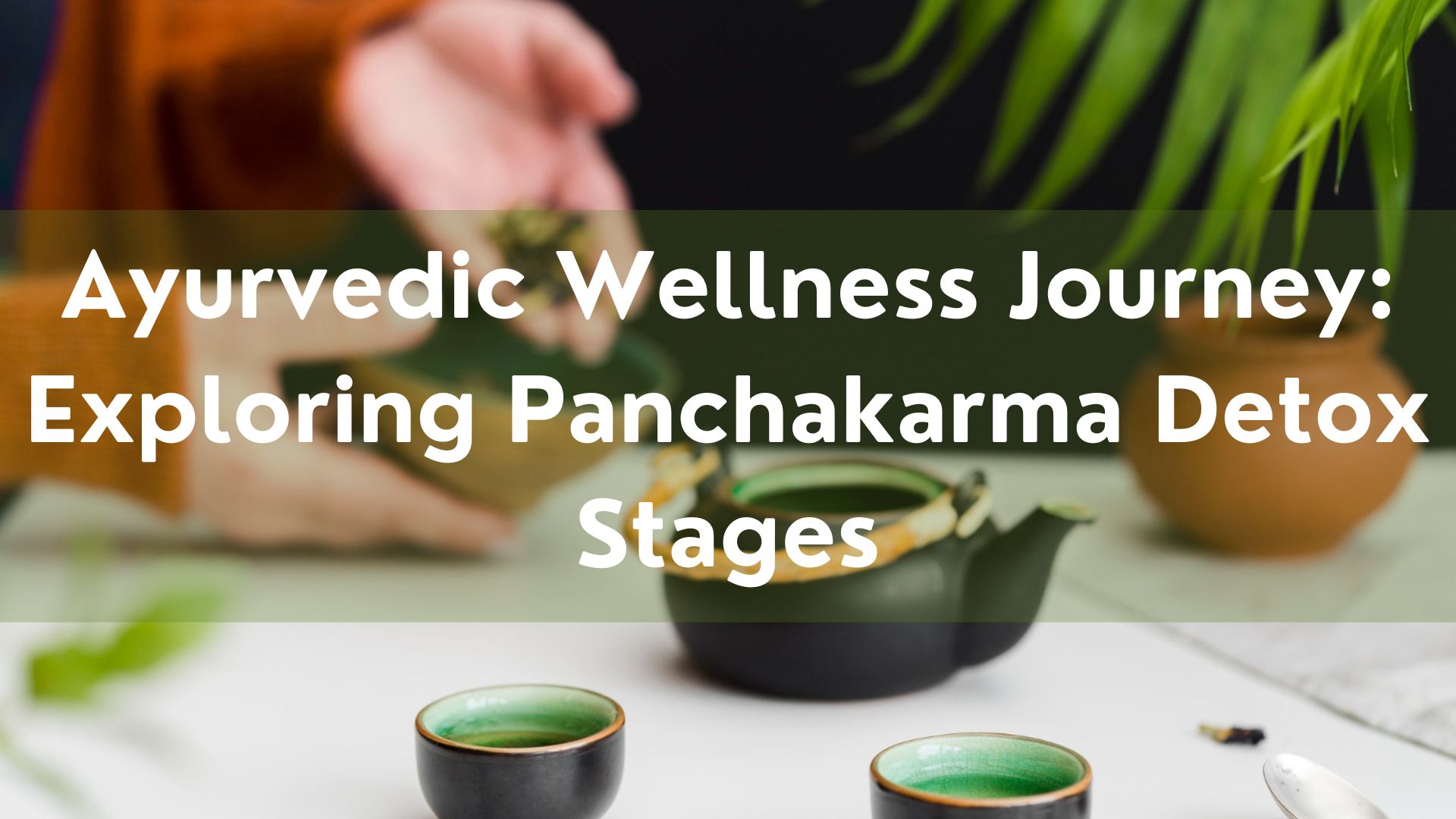Ayurvedic Wellness Journey: Exploring the Stages of Panchakarma Detoxification

Panchakarma is derived from the Sanskrit terms ‘Pancha’ (five) and ‘Karma’ (activities or remedies). Panchakarma is an authentic and holistic practice that is a five-step procedure that consists of detoxification and rejuvenation of the human body from the negative impacts of poor health decisions and toxic environments. In this blog ‘Ayurvedic Wellness Journey: Exploring the Stages of Panchakarma Detoxification’ we’ll explore the holistic practice, its benefits, and online panchakarma course.
Our quality of life and healing capacities improve when we restore our natural healing. When these are combined with soul and emotional healing practices like meditation and yoga, we obtain whole Ayurvedic health. Pursuing excellent health and a higher quality of life has been plagued by medications and synthetic treatments that relieve symptoms and do not always cure diseases.
Panchakarma – The Ayurvedic Journey to Wellness and Balance
Panchakarma aims to purify and rejuvenate the mind. Continue reading the blog ‘Ayurvedic Wellness Journey: Exploring the Stages of Panchakarma Detoxification’ to gain a better understanding of holistic therapy.
Steps Involved In Panchakarma
Ayurveda Panchakarma includes these steps:
- Poorvakarma (Snehana and Svedhana)
- Primary purificatory practices (panchakarma)
- Post Panchakarma therapies
Poorva Karma
The preparatory stage of panchakarma is known as the poorva karma. This step consists of getting the body ready for the major Panchakarma treatments. It often incorporates sweating therapies such as Snehana (oil massage) and Swedana (herbal steam therapy) as well as oleation (the external and internal use of medicated oils or ghee). These treatments aid in the removal of toxins from the tissues and transporting them to the digestive tract for disposal.
Pradhan Karma
Once the procedure of poorvakarma is completed, the pradhakama will begin. It mainly involves five steps that constitute the remaining procedures of panchakarma. Let’s take a look at them.
-
Vamana
Vamana is a type of guided emesis in which the toxins are flushed out by induced vomiting. The procedure will help to eliminate excess Kapha in the upper respiratory and digestive systems. You can also enhance your knowledge of Panchakarma with our Online Ayurveda Course.
-
Virechanam
Also known as purgation therapy, this stage will focus on the administration of ayurvedic herbs to induce bowel movements to excess pitta and flush out toxins from the liver and intestines.
-
Basti
Otherwise known as enema therapy, this panchakarma stage involves the introduction of herbal decoctions and oils into the rectum. It helps to eliminate Vata and toxins from the colon.
-
Nasya
Nasya Therapy is mainly used for treatments for diseases of the neck, throat, head, and senses. Besides helping with toning and strengthening these areas, ayurvedic therapy will help you improve vision, smell, and headaches.
-
Raktamoshana
This procedure involves removing unclean blood from the body since it causes skin and body ailments average amount released is 2 to 8 ounces. When dealing with Pitta disorders such as skin, liver, and spleen, as well as ailments such as gout, migraines, and hypertension, raktamoshana might be beneficial.
Post Panchakarma Procedures
After completing the Panchakarma therapy, specific post-treatment procedures are advised to ensure that the body fully recovers and maintains the equilibrium obtained during the therapy. If you are interested to know more about holistic therapy, you can take School of Ayurveda’s Government approved Panchakarma Course in Kerala.
-
Sansarjan Karma
During the panchakarma procedure, the patient will be on a strict diet. The goal of sansarjan karma is to gradually return the patient's diet to normal, such as transitioning from liquids to semi-solids to a normal diet.
-
Rasayana Therapies
A revitalizing Rasayan therapy that helps to boost natural immunity and improve overall well-being. The advantages of Rasayana karma offer a better and longer life and a virility boost.
Benefits of Panchakarma Therapy
Panchakarma offers numerous benefits to the body, mind, and soul of an individual. Let’s take a look at some of the benefits of holistic therapy.
-
Purification of body and soul
Panchakarma Therapy acts as the ultimate solution for detoxification and rejuvenation of the body. These treatments will nourish the body, enhance circulation, relax the nervous system, and reduce stress. When it comes to rejuvenation, Panchakarma also creates an environment of healing and restoration.
-
Boosting the Immune system
Panchakarma therapy is an immune booster. The procedure will help to flush out the toxins and reinstate our body’s natural defense mechanism against diseases. Panchakarma also eliminates waste and strengthens the body's ability to fight pathogens.
-
Balancing the vitiated doshas
Ayurveda cites that the imbalance of the doshas vata, pitta, and Kapha triggers the disease, and panchakarma treatment aids to restore balance and promote optimal health. The energy flows smoothly when the doshas are balanced.
-
Enhancing Digestive Fire
Panchakarma therapies also include procedures like dietary modifications, herbal formulations, and specialized treatments. All of these treatments aims to that strengthen the digestive fire of the patients. An efficient digestive fire will ensure efficient digestion and absorption of nutrients while also eliminating metabolic waste from the body. When the digestive system functions optimally, the body can extract essential nutrients and eliminate toxins, promoting inner healing.